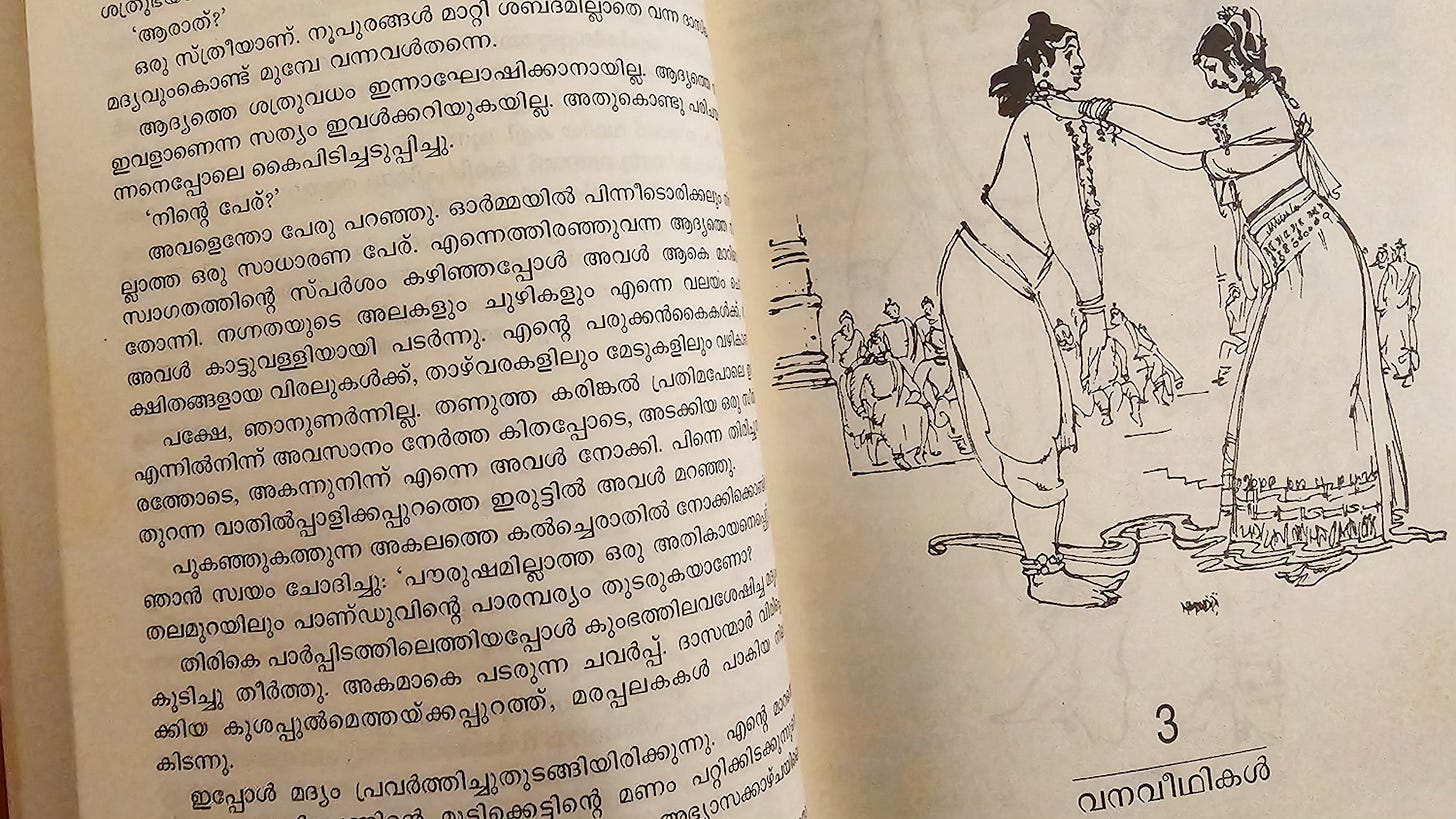I wanted to write this when M.T. Vasudevan Nair passed away on Christmas Day last year. But I would have felt like an impostor because I didn’t know much about his life. I knew the art (or at least a part of it), not the artist.
When Doordarshan was M.T.V.
I have watched a few movies written and/or directed by M.T., thanks to my Doordarshan childhood. They would play Kadavu and Parinayam over and over again on weekends. Oru Vadakkan Veeragadha too—but that was a given.
I was too young to understand the politics in Parinayam or the gentleness of Kadavu, but looking back, they were instrumental in shaping me into a melancholic child who grew up into a wannabe-cinephile with a Mubi subscription that she ended up using for the sole purpose of lusting over Tony Leung.
But this isn’t about M.T.’s movies. It’s about a novel. It’s about the novel.
Every year, my parents gift me books for my birthday in the hopes that I will read them. I do get to them—in about two to three business years, mostly as re-purchased Audible versions in recent years.
The tradition started when they gifted me Randamoozham, perhaps M.T.’s most popular work, on my 25th birthday.
Randamoozham (meaning Second Turn) is Mahabharatam narrated from Bheeman’s perspective. But it is much more than that. It is one of the most human retellings of the story—a very down-to-earth and accessible version, without the frigidness of an epic. I finally got around to reading it two years later.
Unaware of what I was about to go through, I started reading the novel in the lobby of a beauty salon in Ludhiana while waiting for my roommate to finish her hair straightening appointment. Waiting for people used to be one of my special talents, but we’ll talk about that some other time.
The novel starts at the end, where the Pandavanmaar, Draupadi, and that dog make their final journey after leaving the world behind. To my horror, before I was even a few pages in, I started sobbing—publicly. The kind receptionist at the salon tried her best to ignore me and spare me the embarrassment. Thankfully, the lobby was otherwise empty. I tried my best to hold back my tears, but to no avail. But eventually, we moved on from the emotional parts. By the time my roommate came out, I was back to my respectable self.
The second turn
When I finished reading it, I lent it to my roommate and forgot about it.
One day, while I was rotting in bed, she burst into my room, sobbing, "Abhimanyu marichu…" (Abhimanyu is dead!).
I sat up, wondering—did we know any Abhimanyu from work? Was it someone from HR or Finance? Then she started talking about Chakravyuham and the war, and it struck me. I had gone through the same set of emotions just days before when he died in the novel.
What a fate it is to be a young prince who is destined to die over and over again, each time a new person reads the book.
Some years later, I would also read the book out loud to Sharan during our lovey-dovey courtship period. Those times feel like another life altogether. If Abhimanyu and I met again, I wouldn’t be the same person. But Abhimanyu would still meet the same fate.
Wow, I’ve made myself sad—like the Doordarshan Kadavu-watching version of me.




രണ്ടാമൂഴം is a perennial favourite whose lines are inscribed in the back of my eyelids, it feels sometimes. The description of the battles, the shades of Kunti that I discovered with a shock, and one phrase in particular about the purpose of women's lives. സ്ത്രീകളോ? ഗർഭപാത്രങ്ങൾ. Wombs, not women.
Do you remember the time when Doordarshan used to premier a movie during the weekends and we were ready to sacrifice our life for it?